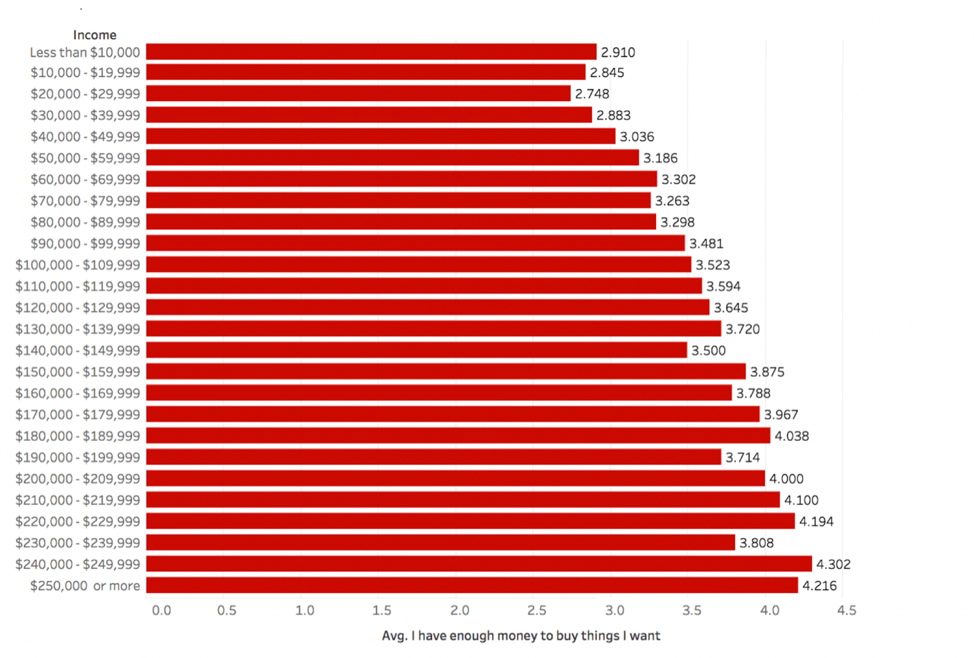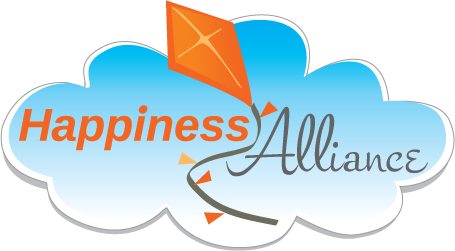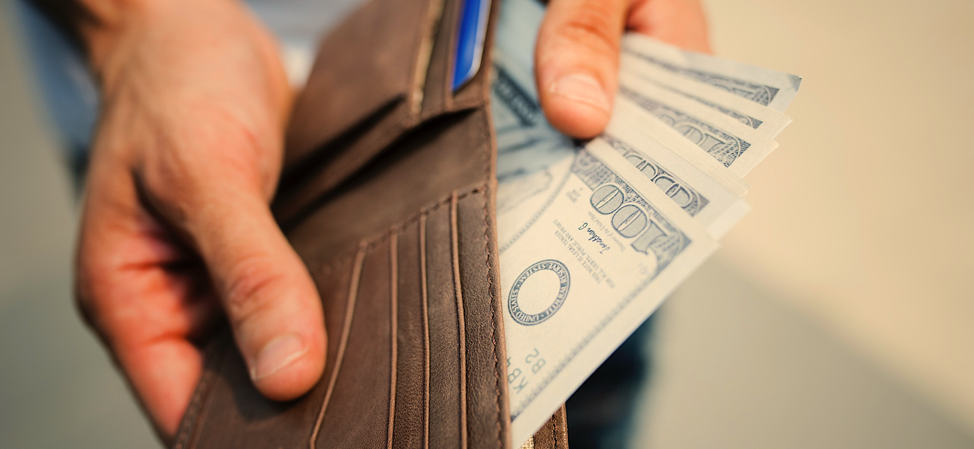Money can’t buy you love, but can it buy you happiness? At a deep level, you know that that money can’t buy you happiness, but you also know that money does buy what you need to be happy. After all, without money, you would not be able to meet your basic needs, like food, shelter, and health care. You need money to meet your higher needs, like getting an education, buying art supplies, and travel. So what is the relationship between money and happiness?

Image: Means to Meeting Needs based on Maslow’s Hierarchy of Needs
Happiness data and happiness science reveal some interesting findings about money and happiness, with lessons you can bank on for greater happiness. The Happiness Alliance has been collecting happiness data since 2011 with an instrument they call the Happiness Index. The Happiness Index is a multidimensional survey that measures your happiness. There are questions about your health, education, community, social support, environment, government, time balance, work, and financial well-being. If you take the Happiness Index – which you can by visiting happycounts.org – you will be asked three questions about your personal economy:
· How much stress do you feel about your personal finances?
· Do you feel like you have enough money to buy the things you want?
· How often are you living paycheck to paycheck?
In 2017, 6,685 people answered these three questions. The data revealed that on average, everybody, rich and poor, feels some stress about their personal finances. A score of 5 would mean you feel no stress at all about money, and a score of 1 would mean you feel overwhelming stress. On average, no one is stress free. People who make 50,000 dollars a year or less are only about 20% more stressed than people who make 150,000 dollars a year or more, with average scores of 2.7 compared to 3.5.
Does this make sense? Happiness science says yes. Richard Layard, author of Happiness: Lessons from a New Science, found that while average income levels more than doubled (in real dollars, meaning comparable spending power) between the fifties and the late nineties, happiness levels hardly changed at all. In other words, the amount of money you make has relatively little impact on your happiness. What does this mean to you?

Chart: Average scores by income level of stress levels about personal finances.
Lesson from Happiness Science # 1: How to feel less stressed about money.
It may seem counterintuitive, but if you want to feel less stressed about money, give. Happiness researchers find that when you give, you feel happier. This lesson is aligned with many spiritual traditions that promise a sense of richness in giving. In Christianity and Judaism, tithing is a practice that brings great spiritual wealth. In Buddhism, generosity is one of the pathways to enlightenment.
There are many ways to give. You can give your time, your attention, or your love. You can give away the extra things you don’t need, or give away something you love but can live without to someone you know needs it more than you. But surprisingly, giving money has a special power.

Image: Giving Money Has a Special Power of Making You Feel Richer.
Give even a little bit to a cause you believe regularly, or to someone in need, and you will find you feel richer. Giving money will help put your stress about money in perspective and is a step towards rethinking your relationship with money.
But won’t giving money put a cramp on how much you can buy? Remember that one of the questions in the Happiness Index is Do you feel like you have enough money to buy the things you want?
For this question, the difference between the people who make over 150,000 and people who make 50,000 a year or less is wider. The wealthy are 28% better off than the poor, and on average agree, albeit not strongly, that they have enough money to buy everything they want. On average, those who make less money would not say that they absolutely don’t have enough money to buy what they want, but at the same time they would not agree that they do.

Chart: Average Scores for Feeling Like You Have Enough Money to Buy the Things You Want
What does this mean to you? You may have the experience that as you make more money, what you want changes. When you were a poor graduate student – or maybe you grew up poor – you may have dreamed of taking a vacation, or being able to eat fruit every day. When you started earning more money, it became normal to eat fruit every day, and take a nice vacation or two a year. As your income increases, your desires change. You find yourself buying a designer suit or electric car that in your poorer days you not have dream of buying. With enough have enough money to buy designer suits, beautiful cars, and the latest cellphone, you find yourself scaling up regularly; buying nicer suits, better cars, and cooler devices and never quite satisfied with what you have. This is called the hedonic treadmill

Image: Hedonic Treadmill.
Lesson # 2 from Happiness Science: How to have enough money to buy what you want.
Yet another lesson from happiness science about money and happiness has to do with saving instead of spending. Happiness research tells us that when we save money, we feel better in the short and long run. You can think of saving money as investing in your well-being.
Whether you have just a little money, or a lot of money but are not in a position to save a lot these days, saving even a little bit every week or month has an effect on your brain and on your feelings. Happiness science says that making a habit of saving will not only increase your happiness, but your resilience for hard times as well. That makes common sense.
Sometimes you can’t save money, but can save in other ways. Cut down on expenses (you may not need both Netflix and Amazon Prime Video). Buy less things and eat inexpensive foods at home, like lentils and rice. As you develop new habits of saving, other ways to save will come to you.
With all this giving and saving, will you be able to get by financially? The Happiness Index asks the question How often are just getting by financially and living paycheck to paycheck?
On this question, the people who make 150,000 a year or more are better off compared people making 50,000 a year or less. On average, people who make more money rarely find themselves just getting by financially. Those who make 50,000 a year or less are quite likely to live paycheck to paycheck. Yet, while people who make more money are 34% better off than those who make less, they are still stressed about their finances and don’t necessarily feel that they have enough money to buy everything they want.

Chart: Average Scores for Living Paycheck to Paycheck.
What does happiness science have to say about this, and what can you do about it? Longitudinal studies conducted by Richard Easterlin give us important clues. Easterlin’s research is based on many years of data gathered in many countries about happiness and income levels. You may have heard of the Easterlin Paradox.
The Easterlin Paradox is a scientific finding that says that after a certain level of income, your happiness does not increase – or does not increase much. For people in the USA, an income of between $35,000 and $75,000, depending on how you meet your needs and your personality type, will give you the most happiness you can get. In truth, if you want to get happier after you reach the Easterlin Paradox level, you will have to nearly double your income to get just a little bit happier, and then double it again to squeak out another tiny gain in happiness. This is called marginal returns. In other words, you’re better putting your time and energy into other things besides making money if you want to be happier. Using a little imagination and looking to Maslow’s hierarchy of needs, you can figure out what would make you happier given the circumstances of your life. For some, great happiness comes from spending time with family and friends. For others, pursuing a dream or spending time on creative pursuits gives them joy. Others get meaning and contentment from doing things with people; joining club, team, group or volunteering for a cause. Still others get great happiness from spending quiet time alone, reading, meditating, or gardening. For all of us, a balance of various activities that are not necessarily aimed at making money are necessary for our happiness.
To recap, happiness science give us three lessons we can employ to make us happier when to comes to money: Give, Save, and Make Less. Take the Happiness Index survey to get your own assessment of your well-being, and download the Personal Happiness Handbook Part One: Happiness and Money for more information on happiness and money.
Written by Laura Musikanski, Executive Director of the Happiness Alliance


